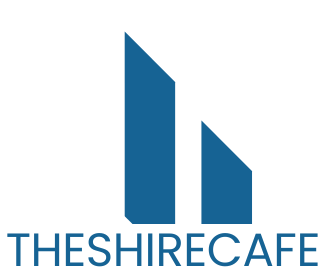Imagine living in your dream home while someone else foots the bill. Sounds like a fantasy, right? Welcome to the world of house hacking, where savvy homeowners turn their properties into cash-generating machines. Whether it’s renting out a room or converting a basement into a cozy apartment, house hacking isn’t just smart; it’s practically a superhero move for your finances.
Table of Contents
ToggleWhat Is House Hacking 101?
House hacking refers to strategies that enable homeowners to generate income from their living space. Owners can reduce or eliminate their mortgage by leveraging portions of their property for rental income. Renters might occupy an extra room or an entire unit within the home.
Various house hacking methods exist. Renting a room in a primary residence appeals to many. Converting a basement or attic into a separate apartment creates additional rental opportunities. Short-term rentals, such as those listed on platforms like Airbnb or VRBO, maximize revenue potential. These options allow homeowners to benefit from their property’s income-generating capabilities.
Financial advantages distinctly set house hacking apart from traditional homeownership. Homeowners can cover significant expenses, including mortgage payments, property taxes, and maintenance costs. This strategy often leads to increased cash flow and builds equity in the property over time. Many homeowners find that less financial strain makes for a more enjoyable living experience.
Navigating local laws and regulations remains essential. Zoning rules may dictate how rental spaces can be utilized, especially in residential areas. Compliance with housing codes ensures safety and legality, which protects both landlords and tenants.
Overall, house hacking provides a practical approach for those looking to maximize their investments while minimizing living expenses. Engaging with tenants enhances community connections, creating a mutually beneficial environment. Understanding the nuances of house hacking empowers homeowners to optimize their properties effectively.
Benefits of House Hacking

House hacking offers various advantages that enhance financial stability and foster community connections. Below are key benefits of this strategy.
Financial Freedom
House hacking significantly reduces housing costs. By renting out a portion of a property, homeowners can generate income that covers mortgage payments, taxes, and maintenance costs. This additional revenue stream often leads to increased cash flow, allowing for greater savings and investment opportunities. Homeowners frequently find that reducing their housing expenses creates a path to financial independence. Additionally, tenants contribute to building equity in the property, giving homeowners a solid financial foundation. As a result, house hacking becomes a practical approach to achieving long-term financial goals.
Community Engagement
House hacking encourages stronger community ties. By sharing space with tenants, homeowners often form connections that lead to a more vibrant living environment. This interaction fosters a sense of belonging among residents. Engaging with tenants promotes collaboration on community events and local initiatives. Homeowners frequently find themselves part of a network that extends beyond financial transactions. Furthermore, addressing tenant needs can cultivate lasting relationships, enhancing overall living experiences for both parties involved. Such connections enrich neighborhoods, making them more supportive and engaging places to live.
Types of House Hacking
House hacking includes various strategies homeowners use to generate income and reduce living costs. Here are some popular methods.
Renting Out a Room
Renting out a room involves leasing a part of the home to tenants. Many homeowners benefit from this method by finding reliable roommates. This option can produce monthly rental income that covers significant expenses like mortgage payments. Flexibility exists since homeowners can choose to rent out a single room or multiple spaces. Platforms like Craigslist or Roommates.com assist in finding potential tenants, increasing visibility. Having a clear lease agreement ensures both parties understand their rights and responsibilities.
Multi-Family Properties
Multi-family properties contain several units in one building. Homeowners can occupy one unit while renting out the others, creating a steady income stream. Investors often prefer this strategy due to its higher rental yields compared to single-family homes. Financing options for multi-family properties may allow for lower down payments, making them more accessible. This approach also aids in property management and maintenance since one location simplifies oversight. A strong rental market in the area can significantly enhance profitability.
How to Get Started with House Hacking
Getting started with house hacking requires careful planning and consideration of strategic steps. This approach maximizes potential income while minimizing living costs.
Finding the Right Property
Selecting the right property is crucial for successful house hacking. Look for homes with extra rooms, basements, or attics that can become rental spaces. Properties located near schools, public transportation, or major employers attract tenants easily. Multi-family homes present fantastic opportunities; living in one unit and renting the others ensures steady income. Consider evaluating neighborhoods for rental demand and property values before making a purchase to maximize returns. Analyze total costs and potential rental income, ensuring a positive cash flow for the investment.
Understanding Local Laws
Navigating local laws is essential for compliant house hacking. Landlords must familiarize themselves with zoning regulations, rental licenses, and tenant rights. Each city or state may have distinct laws governing rental practices, including tenant screening and lease agreements. Research local housing authorities’ requirements to avoid penalties. Focus on understanding health and safety codes to maintain a safe environment for tenants. Consulting with a local real estate attorney can provide helpful insights, ensuring all agreements meet legal standards.
Tips for Successful House Hacking
Effective house hacking requires careful planning and management. Homeowners can maximize their investment by following key strategies.
Managing Tenants Effectively
Understanding tenant needs promotes a positive living experience. Communication plays a crucial role in addressing concerns and establishing trust. Setting clear expectations from the beginning helps prevent misunderstandings. Utilizing platforms for screening potential tenants ensures reliability and compatibility. Additionally, implementing written lease agreements safeguards rights and responsibilities. Conducting regular check-ins fosters a sense of community, encouraging tenants to feel involved and valued. Offering incentives for long-term stays can enhance tenant satisfaction and stability.
Maintaining Your Property
Regular maintenance enhances both property value and tenant satisfaction. Scheduling seasonal inspections identifies problems before they escalate. Prioritizing repairs ensures immediate issues do not affect living conditions. Establishing a routine cleaning schedule keeps common areas tidy and welcoming. Investing in upgrades can attract premium tenants and increase rental income. Landscaping enhances curb appeal, making the property more appealing to prospective renters. Lastly, maintaining open communication with tenants regarding maintenance requests allows for swift resolutions and fosters a positive rental relationship.
House hacking presents an innovative solution for homeowners seeking financial relief and community engagement. By leveraging their properties for rental income, they can significantly reduce housing costs while building equity. This strategy not only enhances financial stability but also fosters connections within the community.
Navigating the complexities of local regulations and tenant management is essential for success. With careful planning and a clear understanding of the rental landscape, homeowners can create a sustainable income stream that supports their lifestyle. Embracing house hacking can lead to greater financial freedom and a more vibrant living environment.



